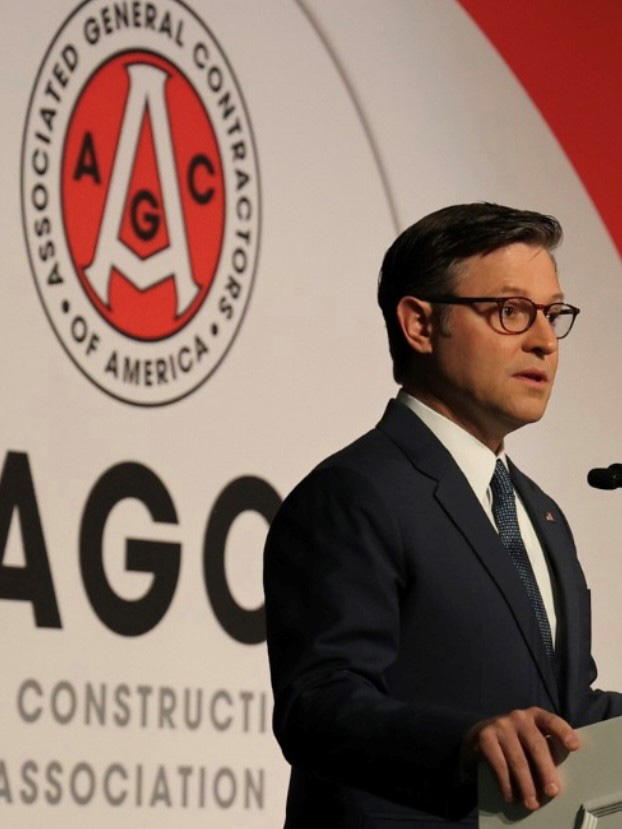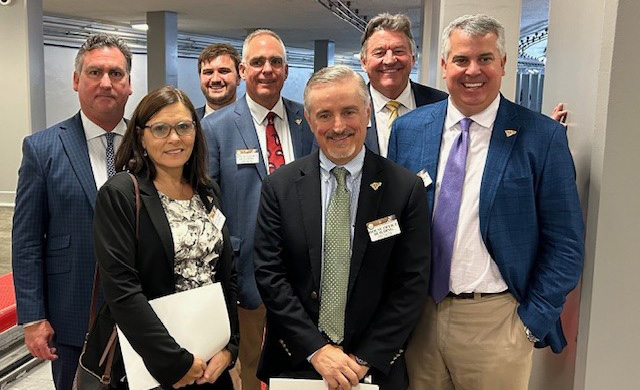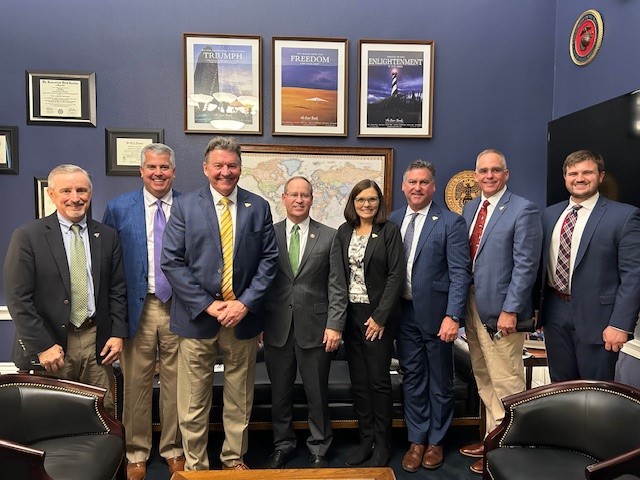CAGC Leaders Converge on Capitol Hill
Carolinas AGC Leaders last week met with Congressional delegation representatives from North and South Carolina to discuss issues important to the construction industry, ranging from help with the workforce shortage to opposing impractical proposed heat standards.

The Capitol Hill visits were part of AGC of America’s annual National Chapter Leadership Conference that drew about 250 attendees from across the nation. CAGC representatives met with seven Congressional Office representatives, including U.S. Representatives Virginia Foxx (R-NC, 5th District) and Greg Murphy (R-NC, 9th District) as well as Senator Ted Budd (R-NC, 19th District). One highlight of the three-day conference included a 25-minute presentation from U.S. House Speaker Mike Johnson (R-La., 4th District). A bipartisan presentation also was made by Congressional Staff members on how to be successful in Capitol Hill visits by construction industry representatives.

CAGC attendees making the trip included BOD Chair Dean Wilson, Chair Elect Ty Edmondson, Treasurer Lynn Hansen, Vice Chair Marty Moser, Immediate Past Chair Mark Johnnie as well as Dave Simpson, CAGC President & CEO. Also attending the CAGC Capitol Hill visits was John Chambers, Director, AGC Utility Infrastructure Division.
Issues discussed by CAGC leaders with the Congressional representatives included:
- PFAS (so-called forever chemicals): AGC supports a commonsense approach to managing contamination involving PFAS, manufactured chemicals which are prevalent in the environment and are present in such items as stain-resistant clothing and furniture as well as firefighting foam. Contractors performing related cleanup may not even know the chemicals are present, causing them to face severe joint and several liability risks. “Innocent contractor” provisions need to be added to existing law and for protection from frivolous lawsuits.
- Proposed federal heat standards: CAGC leaders told lawmakers and their representatives that the construction industry wants to protect its employees, safety is our top concern and OSHA should establish clear enforcement guidelines that are fair and consistent – and not impose impractical heat standards that would severely restrict when construction work could be performed, particularly in warmer Southern states.
- Construction-related taxes: The construction industry – and other businesses – need help in avoiding a 20% tax increase by making the 199A/QBI deduction permanent after this provision expires in 2025. Savings from the existing tax deduction are used to pay employee benefits and buy capital equipment, AGC maintains.
- More funding for Career Technical Education (CTE) and Pell Grants is desperately needed along with Immigration Reform, including the creation of new temporary visas for less skilled workers to address workforce needs and curb illegal immigration. Another important issue is for Congress to ensure that the H-2B Visa Program remains a viable option for construction employers.







